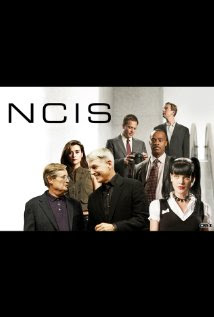Sunday, February 20, 2011
The Fight for Gay Marriage
Here's an article about the current state of offers regarding same-sex marriages and the government. At this time, 30 states have banned same-sex marriages. The country seems completely divided on the issue as the article states, "Polls, however, indicate Americans closely divided on legalizing gay marriage, with 47 percent of participants saying they favor gay marriages and about 50 percent saying they oppose it."
But what started this battle for gay rights? Could the Civil Rights Movement itself be a huge contributor? What makes same-sex marriage a huge issue right now?
I believe that if it had not been for the Civil Rights Movement paving the way for the acceptance of people of different races, we could have never gone to the next step. The Civil Rights Movement taught us that we are all human beings and we are all equal. The Gay Rights Movement is the next step in reaching equality.
I think the reason same-sex marriage has become such a controversial and discussed issue is because now more than ever are people willing to fight for the right to a civil union.
Tuesday, February 8, 2011
No Blacks Nominated for Oscars
Among those excluded from the list of nominees include Halle Berry(who had previously won an Oscar for Best Actress), who received a Golden Globe nomination for her performance in "Frankie and Alice," Kimberly Elise's performance in "Tyler Perry's For Colored Girls," and John Legend, whose song "Shine" appeared in the documentary "Waiting For Superman."
 Halle Berry in "Frankie and Alice."
Halle Berry in "Frankie and Alice."To me, that seems like another form of racial tokenism to just include a minority in order to have diversity in the names of those nominated. I did not see any of the movies listed above so I cannot comment if Halle Berry or Kimberly Elise's performances were Oscar-worthy or not. But if they truly did a good job and deserve that Oscar, than they should definitely had been nominated. But if these actresses had been included just because of their race, they would be tokens.
Thursday, February 3, 2011
Racial Tokenism in Television

Leon Vance, played by Rocky Carroll, is the only minority in the cast and is given a position of authority on the show as a director. However, if you look at the cast picture, he is clearly positioned behind three white characters.
Another example would be Grey's Anatomy, who's show has a few minority characters.
Miranda Bailey and Richard Webber, are both minority characters and hold authority roles in this television show. Webber is the Chief of Surgery while Bailey was Chief Resident. In the picture above, both characters are on opposite sides of each other (evening the picture out) and are placed on the outsides. Seven characters, most white, one who is Asian, separate the two. Furthermore, both characters are sitting.
While watching an episode of Grey's Anatomy, I took note of the screen time of the character Miranda Bailey and noticed that out of the 42 minutes of the show, she had only been on for 3 minutes and 36 seconds.
Why is does this kind of tokenism occur in television?
I believe that it still has to do with society. We might believe we're making progress, we do have a half-black president after all! But not until very recently with the NBC show the Undercovers, has a black character been the center of prime time television show. Undercovers was canceled on November 4, 2010.
Many television shows place minority characters not only in the cast, but also as extras in order to appear racially diverse. However, many of these characters do not receive an appropriate portrayl or enough screen time. Perhaps, in years to come this will change as society becomes more accepting and we will see more racially diverse MAIN characters instead of the typical white male (and now even more female) lead.
